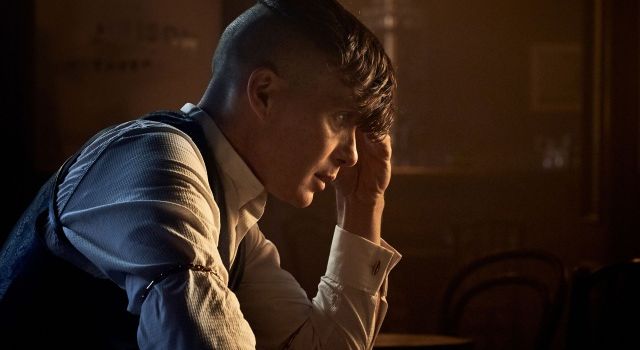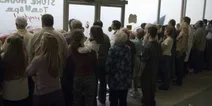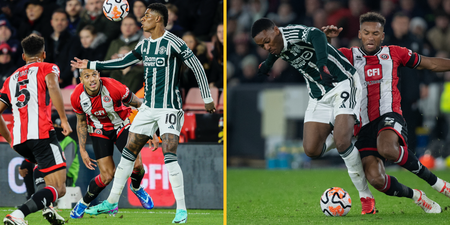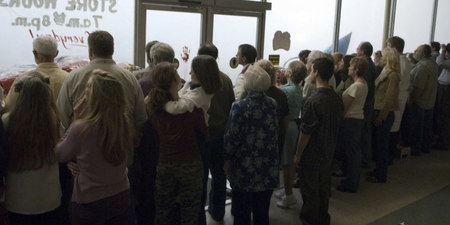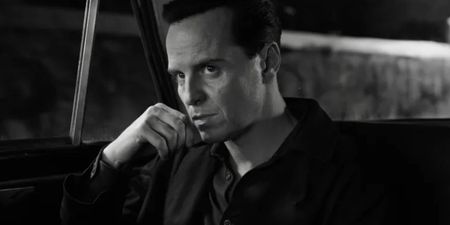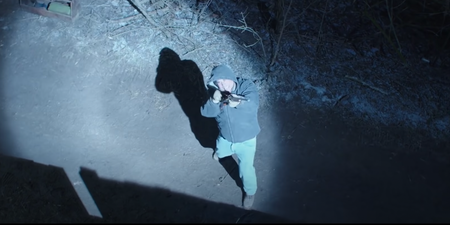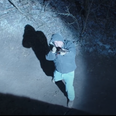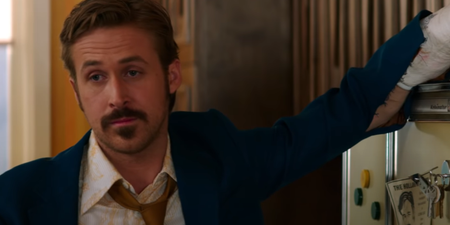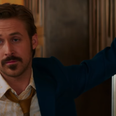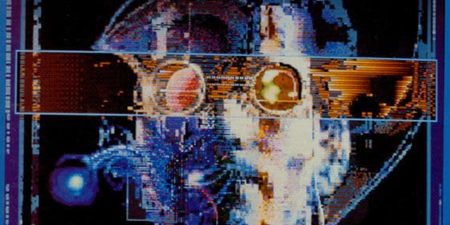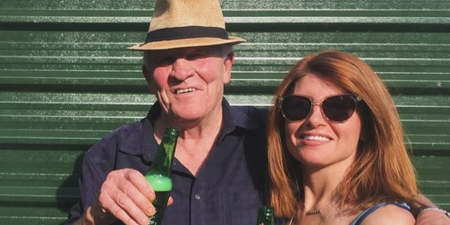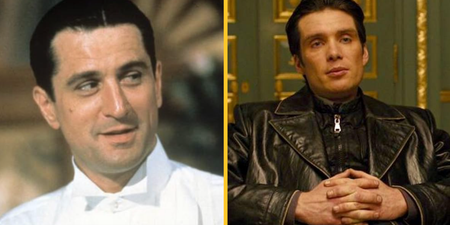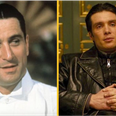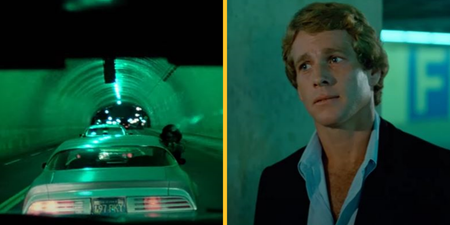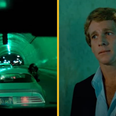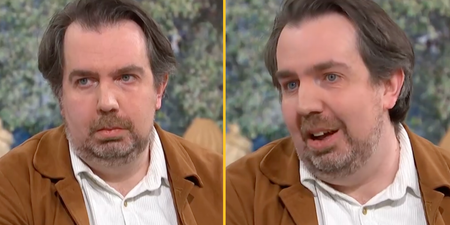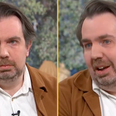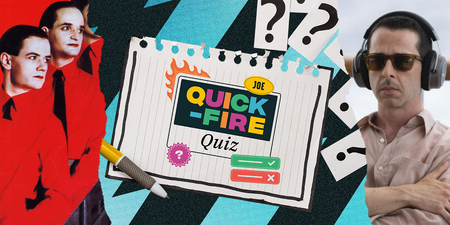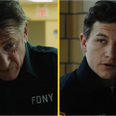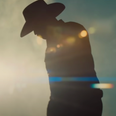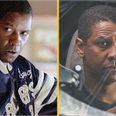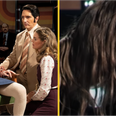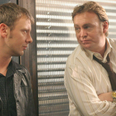JOE meets the creator of Peaky Blinders to discuss Season 5, the importance of Ireland in the new season and a Peaky Blinders movie.
Directors on a show usually work for one season and then leave. Audiences can fall in love with a character before they’re killed off. There are even some moments when Peaky Blinders fans might question the motives of Tommy Shelby.
However, throughout the course of Peaky Blinders, one thing has been constant. Steven Knight’s impeccable vision for how story of the Shelby family will unfold.
As Cillian Murphy told JOE, the most impressive thing about the show’s success has been its incremental success. With every passing year, the show gets a little bit bigger, the viewing figures go a little bit higher, the world gets a bit broader and the quality just keeps on going up.
That’s testament to Knight’s skill as writer – any interview with a cast member is usually peppered with glowing quotes about how the scripts are a joy to read – but with a growing audience comes growing pressure.
The show has now been moved to BBC One and it’s truly a global phenomenon due to its exposure on Netflix.
However, to Knight, he still sees Peaky Blinders as a family drama and why wouldn’t he? Peaky Blinders runs in his blood because these are the stories that he was raised on from his own family in Birmingham.
Ahead of the release of Season 5, JOE had the chance to meet Knight and he shared his vision for the Shelbys and the show, as well as discussing a little bit of Irish history while he was at it.
It has been a long time since the Season 4 finale. Can you set the scene as we move into Season 5?
Steven Knight: Tommy’s an MP for Birmingham and he blurs the line between the respect a criminal godfather would have in his home turf with that of an MP, so he’s doubly-enfranchised. He’s doubly-powerful and yet at the same time, in other seasons, he has always faced a nemesis and in this one, he has some powerful enemies but his biggest enemy is himself. He’s struggling.
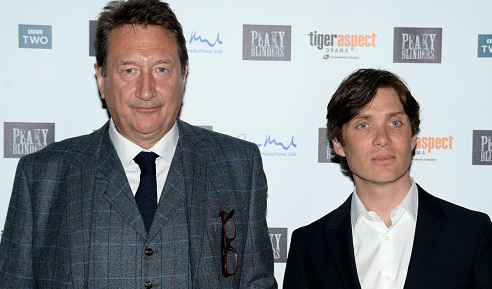
You’ve mentioned the Wall Street Crash. Does that have an impact on Tommy’s life as an entrepreneur?
SK: Episode one begins with the crash and the Shelby Company have invested a lot of money in legitimate shares and stocks, but that gets wiped out. When that happens, one begins to question how different is legitimate to illegitimate? They played the casino of Wall Street and lost everything. They fall back on the illegitimate means of income.
We’re going to see Tommy in a new environment, politics. What’s the evolution of the character like now that he’s spending more time in the House of Commons?
SK: He’s different and he’s the same. He certainly doesn’t step away from the grime and dirty side of being Tommy Shelby. If anything, because he’s having his own problems himself, he’s sort of becoming quite reckless, so he’s prepared to take risks and entertain danger. At the same time, he’s stepping into the House of Commons and he’s a Labour MP at the same time that Oswalt Mosley was a Labour MP.
So he rubs up against the person that would ultimately become the leader of the British Union of Fascists. What I’m setting up is that we’ve had the hedonistic ’20s with the madness, cocaine, and booze. The Wall Street Crash happens and that’s sort of the beginning of the hangover that led through the ’30s. What I’m planning on planting in this season – which I’ll pick up in series 6 and 7 – is, amongst the many other things, that fascism is afoot. That’s what Tommy is embroiled in.
Was it always your plan to introduce politics into the show?
SK: The plan was always there to bring politics into this. Like, right from episode one of Season 1, we see Churchill showing up. I always wanted the show to reflect the idea that a working class man in a working class suburb is affected by – and affects – national events and eventually, international events. It’s always down with an eye to what’s going on at the time.
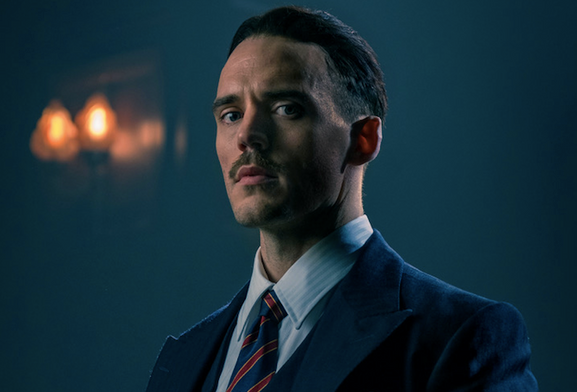
How does Tommy’s journey impact some of the other family members?
SK: The question I’ve always wanted to ask is can you escape where you’re from and who you were born as? Polly and Arthur are all, in their own way, trying to escape and get away from this life because they know it’s killing them. The question is, can they get away?
Again, both of them in their own different ways sort of almost escape but don’t quite. The question is why? Are you not escaping because you don’t want to because this is who you are? This is the question.
Tommy, all along, believes that this is it. After the nihilism of WWI, he’s sort of careless of himself, morality and ethics. What I’m trying to do over the scope of the whole thing is show that the PTSD will never go away, but what I wanted was that when he came back from the war, he was totally frozen. But bit by bit, he’s starting to thaw out, especially in this season, but that’s when the pain comes in. That’s what he’s starting to feel, even though it’s 10 years after the war. He’s starting to feel things and he’s not sure he wants to.
In Season 4, you had a lovely moment when you mentioned a potential business partnership between Al Capone and the Shelby Company. Were you tempted to take the show to the US and introduce the Chicago gangster element of the Prohibition era?
SK: I’ve always not wanted to do that because I think it’s a bit of a minefield because it has been done a lot. The Americans do it well, they do their own mythology. This is our story though. Peaky is about Britain and Ireland. I never really wanted to go there (US). In series 6 we will go west, but it will be in a different way.
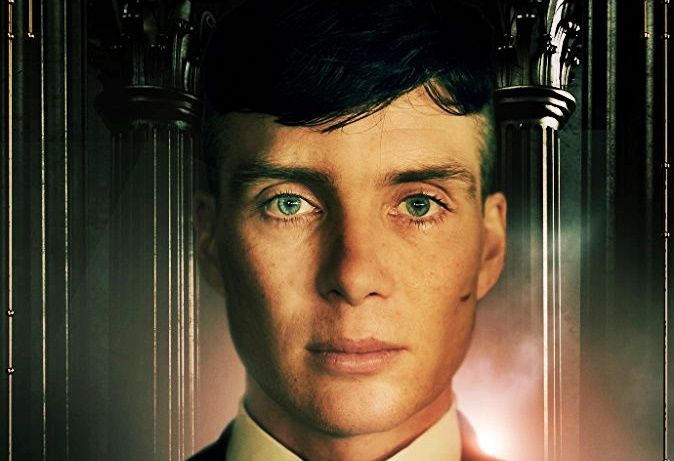
What do you make of people that compare it to The Godfather films?
SK: If anyone ever compared it to The Godfather, I’d be deeply flattered! Obviously, The Godfather is a fantastically beautiful and balanced series of films. It’s someone looking at their own Italian culture and turning it into something universal. I’m trying to do something similar by taking this story of a half-gypsy family that’s living in the slums of Birmingham and turning it into what anyone in the world can recognise and feel. It seems to be working because it’s so popular all over the place.
Does the show’s growing popularity change your approach to writing the story?
SK: It gives you confidence, which is good. I don’t think this strays into over-confidence. Series 5 is by far the strongest so far because we’ve got a brilliant director, brilliant actors, and the scripts are as good as they’ve ever been. It just means that you’re not having to fight against anything. You haven’t got words that are ringing in your ears like ‘you should do this, or that’. Touch wood, everything has been very positive and you can just do what comes.
Do you enjoy writing for certain characters?
SK: There’s a couple of characters in this season that I love writing for. It’s great when you get a character that’s from a background that’s verbal. Like, an Irish background gives you permission to really be quite eloquent, I think. English people, it’s all a bit stiff and ‘yeah, whatever’, shrugs shoulders. With Irish characters – and Americans too – they just talk and say stuff and it’s good that we got a particular character from a Scottish background too. It just gives you that ability to legitimately write eloquent stuff. It’s the same with Alfie. You could take that character and he’s just always on fire in a verbal sense.
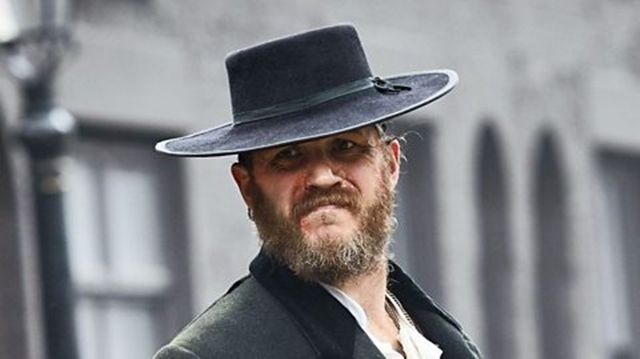
How are the music choices made? Are they in the script?
SK: Music isn’t in the script but the choices are made usually after the thing has been shot. There are certain artists that Cillian once said in an interview ‘they sound Peaky, others don’t.’ It’s hard to define which is which but you sort of know. I don’t make the call, it’s a collective decision and Cillian has a lot of input into who features on the show because he’d be well connected with lots of musicians. We get a lot of incoming interest from artists like with Bowie, that was him coming to us, which was fantastic.
The show has always had some wonderful antagonists that can mix the physical and the intellectual. What’s it like now for Tommy with Mosley. Is he out of his environment?
SK: Tommy is not really out of his environment because he takes to the House of Commons like a duck to water. He’s fine but there are a lot of very dangerous and unscrupulous people there. But he’s used to that company and he’s used to using his intellect to get his own way. He’s still in the environment in Birmingham but it all plays back into this idea that he’s thawing out of his former self. He’s not confronting something that nobody had yet experienced, fascism. He now has to start making some decisions.
Does that trickle down into the rest of the Shelby family? Do they follow him to Westminster?
SK: There are a couple of scenes when the brothers are there (Westminster) and he walks through the corridors of power. It’s sort of the path that’s trodden more often in America. If you think of Joseph Kennedy taking that journey from an alleged rum runner to the UK ambassador – in a very short space of time. It’s certainly feasible here and I suppose in modern times, the nearest comparison would be Belfast where someone has a reputation for violence, then becomes a representative and a good one at that. It is a feasible path to follow.
Do you agonise over killing characters off?
SK: I don’t like to kill any characters off. Usually, deaths are forced by an actor not being available. I don’t believe in the idea that you’ve got to kill a family member to keep everyone interested because death is quite rare, even among gangsters. I try not to make it too common but it’s funny when it is a decision and you say ‘I’m afraid, it’s time.’
Sam Neill was brilliant. I called him and said ‘I think the time for Campbell and Tommy’s confrontation is coming to an end.’ There was a silence and he said ‘I don’t want to die’ and I said ‘OK, fine. I’ll think of something instead!’ He was brilliant.
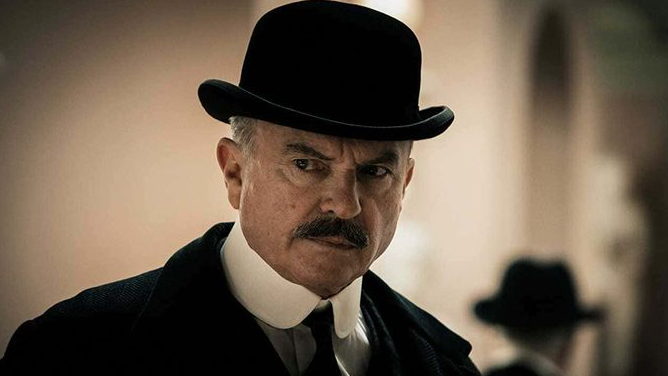
We’re entering a new period in the show’s timeline. This particular era had a change of monarch, Irish independence, a growing movement for women’s rights. Does Season 5 touch on any of those topics?
SK: The women’s civil rights and equality in the workplace movement has always been something that I’ve tried to cover, ever since Season 1. I’ve tried to keep that as a theme because when the soldiers returned from WWI, by legislation, factories had to give a job to a man over the woman.
Through Polly, Jessie and the other strong women in the family, there’s always been that tension between what’s possible and what used to be possible in modern times. In terms of Ireland, it is there in this series, as you’ll see because there are strong connections between the Shelbys and Belfast. You will see that but it was actually quite a fallow period – the late ’20s – in terms of how it impacted on Britain.
Anthony Byrne (director) has said that it’s the darkest season yet. Is that in terms of the style, or narrative?
SK: Stylistically, it’s the most beautiful season we’ve done. Everything that I’m seeing is just gorgeous. Anthony is doing an incredible job. In terms of the darkness, because we’re in Tommy’s head a lot, it’s sort of told through his point of view and he’s going through a bad time. Simply because he has started to feel things again and it’s tormenting him.
Looking beyond Season 5, you’ve talked about making two more seasons. There’s talk about a film too. Is that something you’d like to explore?
SK: I love doing it, I love the world. We were originally going to end it with this series but we thought to ourselves that so many people are just getting into it that it would be such a shame to stop. We may consider a film at the end of Season 7. I think it would be great. I was only starting to think that we could actually go into the Second World War and I was thinking ‘we could we do the war? We could do the Black Market war,’ so that’s a possibility. I’ve been approached about doing a musical, a ballet. Loads of things.
At its heart, does it still feel like a family drama to you?
SK: Yeah. It’s still a family drama to me because what I want to do is take one family and see how the world affects them and how they affect the world. It’s a bit of an experiment in that way, seeing what happens in this world. Five is the best, it really is. It’s going to be so good. I can’t wait for people to see it.
The first episode of Season 5 of Peaky Blinders airs at 9pm on BBC on 25 August.
LISTEN: You Must Be Jokin’ with Aideen McQueen – Faith healers, Coolock craic and Gigging as Gaeilge
